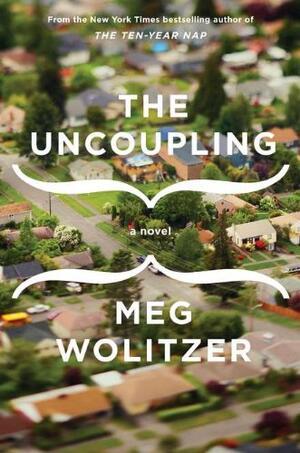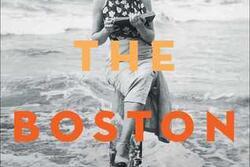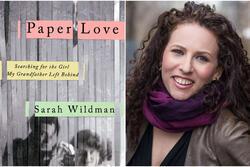Q&A with Meg Wolitzer
Welcome to the JWA Book Club! We are excited to gather today to discuss Meg Wolitzer's best-selling novel, The Uncoupling.
When taking part in our comment-based discussion below, remember to hit "Show Reply" and "Show New Comments" to see the full conversation! Meg Wolitzer will be responding to questions mainly through the "reply" feature.
Here are some questions to consider before we begin:
1. How does The Uncoupling explore the ramifications of the loss of sexual desire?
2. What characters resonated most with you as a reader?
3. What does Meg Wolitzer express about the midlife sexuality of women?







Just re-reading the questions above and realized that, for #2, it is actually Robby who resonates the most with me. I, too, was passionate about my teaching job - in my case, 10 years in a suburban NY elementary school I'd actually attended as a child. I am still, thanks to Facebook, in touch with several of my former students. I also ran a synagogue religious school in suburban NJ for over 9 years, and found a way in which to continue teaching and interact with students as more than an administrator.
In reply to <p>Just re-reading the by MiriamEichler
I have some teachers who I still keep in touch with. I have so much respect for teachers like you who manage to stay passionate about their jobs, especially when they can be so demanding.
In reply to <p>I have some teachers who I by Tara Metal
Thanks, Tara!
Thanks everyone for coming, and remember that our next book is Straight: The Surprising History of Heterosexuality by Hanne Blank. See you next month!!
In reply to <p>Thanks everyone for coming by Tara Metal
I was so busy typing another comment, I didn't realize you were signing off!
Meg ... are you working on a new book? Anything you can share with us as we wait impatiently for your next?
In reply to <p>Meg ... are you working on by Rachel K
Why yes, Rachel. I am writing a book about feminism, mentors and protegees, power, and the like. I am really having a good time writing it.
In reply to <p>Why yes, Rachel. I am by mebalacy
Sounds wonderful! ... what is the publication date?
In reply to <p>Sounds wonderful! ... what by Rachel K
Well, I have to finish it first! Probably it will be out in a year and a half to two years...
In reply to <p>Why yes, Rachel. I am by mebalacy
How very JWA appropriate!
In reply to <p>How very JWA appropriate!< by Tara Metal
I was going to comment ... sounds like it belongs in this Book Club! Please let us know if you add it to the list, Tara!
In reply to <p>I was going to comment ... by Rachel K
I will!
As we wrap up here, I want to once again thank Meg Wolitzer for joining us. This conversation has been a blast!!
In reply to <p>As we wrap up here, I want by Tara Metal
My pleasure. Thanks to all of you who came. It's nice to talk to readers.
Meg, on a very different topic, a Book Club member who couldn't be here today wanted to know what women authors you enjoy reading, and which women have influenced you as a writer. Do you mind answering?
In reply to <p>Meg, on a very different by Tara Metal
Of course; happy to answer. I love the following writers: Edith Wharton, Virginia Woolf, Mary Gordon, Grace Paley, Toni Morrison, Jennifer Egan, Willa Cather, Elena Ferrante.
In reply to <p>Of course; happy to answer by mebalacy
I don't do a ton of reading, but every year around Christmas I reread Ethan Frome. It is one of my favorites. Maybe I will read it in the spring this year...
In reply to <p>Of course; happy to answer by mebalacy
I'm so interested that you cite Jennifer Egan ... completely on my own, I felt like the world/characters in "Goon Squad" had a similar vibe to "The Interestings." Maybe a bit elegaic? Loved the latter, by the way!!
In reply to <p>I'm so interested that you by Rachel K
Oh, thanks. Yes, she is daring and interesting--two qualities to try to have when I work!
In reply to <p>Of course; happy to answer by mebalacy
Great list, thank you! I need to get to Elena Ferrante, I've heard so much about her...
In reply to <p>Great list, thank you! I by Tara Metal
She is fascinating, and it's a pseudonym and no one knows who it is.
In reply to <p>She is fascinating, and it by mebalacy
Yeah, she REALLY guards her privacy, huh?
In reply to <p>Meg, on a very different by Tara Metal
Also, my mother Hilma Wolitzer is a wonderful novelist, and she was always very helpful to me as a writer.
In reply to <p>Also, my mother Hilma by mebalacy
Wow, I didn't know that!
In reply to <p>Wow, I didn't know that!< by Tara Metal
Yes, her most recent book is called An Available Man. it's fantastic, and I recommend it to you all. It's about a widower whose family tries to get him to date.
In reply to <p>Yes, her most recent book by mebalacy
To those interested in reading the book: http://www.nytimes.com/2012/01...
In reply to <p>To those interested in by Tara Metal
Oh, that's nice, thanks!
Meg, can you talk about the aspect of magic in the story? Is it vital to the story or more of a framing device?
In reply to <p>Meg, can you talk about by Rachel K
Rachel--it was a real change for me, if you know most of my work. But I meant it metaphorically, and I wanted to explore these ideas of sexuality and passions and what is the "spell" that comes in and makes us one day feel less passionate, whereas yesterday we were ardent? Relatedly, what is the "spell" that a book can hold--a play, or a novel? I feel that we are all under spells of one kind or another.
In reply to <p>Rachel--it was a real by mebalacy
Your treatment of magic actually reminded me a lot of Thomas Mann's Dr. Faustus--the magic isn't the point, but it was sometimes hard to push to the back of my mind
In reply to <p>Your treatment of magic by Tara Metal
Happy to be compared with Mann.
In reply to <p>Rachel--it was a real by mebalacy
I love that you make a parallel to the "spell" of a good book. This book did cast a spell for me ... I couldn't put it down!
In reply to <p>I love that you make a by Rachel K
Thanks so much!
How might the storyline be affected if Fern Heller were a teacher in a major city, rather than jumping from one suburban location to another, where everyone in a school lives in the same local area and there aren't a lot of other people with whom the teachers interact?
In reply to <p>How might the storyline be by MiriamEichler
It probably wouldn't be as novelistic! I loved the idea of a suburban town...
In reply to <p>It probably wouldn't be as by mebalacy
I also think that, given a larger population for social interactions, the characters might have to be broader-minded and involved in other areas. They, therefore, would not be so focused on what is happening in their school and with their fellow staff members.
In reply to <p>I also think that, given a by MiriamEichler
Right, good point.
In reply to <p>It probably wouldn't be as by mebalacy
Despite Willa's distaste for it, I kind of want to live in that town...also, naming the high school Eleanor Roosevelt high was one of my favorite touches in the book
In reply to <p>Despite Willa's distaste by Tara Metal
Oh, thanks! Details like that just come to you when you're writing...
In reply to <p>Despite Willa's distaste by Tara Metal
A glimpse of "The World As It Should Be!" :-)
Unlike in Lysistrata, the women in The Uncoupling, arenÌ¢âÂã¢t on strike--they just lose interest in sex. What did taking choice and political motivation out of the matter help you focus the story achieve?
In reply to <p>Unlike in Lysistrata, the by Tara Metal
My interest was in some of the unconscious things that cause people to make great changes in their lives. I feel that most changes aren't caused by a sudden decision, but rather by things that get eroded over time, without much thought given to them. It was sad to think of sexuality this way, but I kept hearing women talk about it like that--they were bitterly responding to husbands, or saying they were "done with all that," when talking about sex. And the novelist in me asked: what's THAT about?
In reply to <p>My interest was in some of by mebalacy
so much of it seems to be about built up frustrations, stewing bitterness, and lack of communication. Maybe, as Etta suggested, this SHOULD be read in high schools! As a sort of road map :)
In reply to <p>My interest was in some of by mebalacy
Yes! It is so rare that we suddenly turn on a dime. Relationships and emotions are about the long game and each little event relating to the next, like dominoes or a chain. But the idea of "hysteria" and intense emotions (and our lack of practice in articulating how we feel and communicating openly) often makes it seem like our perspective is changing suddenly.
In reply to <p>Yes! It is so rare that we by Etta King
Yes, yes. When we don't stop to look at them, it can seem as if changes are happening through a force outside us.
So, here's a question for everyone, not just Meg: How would this story be different if it were the MEN who lost interest in sex?
In reply to <p>So, here's a question for by Tara Metal
It wouldn't make sense in the same way, culturally. (Actually if you read the NY TImes Book Review review of this novel, it posits this idea...)
In reply to <p>It wouldn't make sense in by mebalacy
Yeah, as a reader, I agree: women's sexuality and men's sexuality are two different animals, culturally, which really comes out in this book. We think and write about them in ways that could almost never be interchangeable
In reply to <p>Yeah, as a reader, I agree by Tara Metal
Right. It's an endlessly fertile topic, I think.
I would suggest that we explore not only the loss of mid-life sexual desire, but the loss of passion for other things in mid-life (like political issues, for example)....